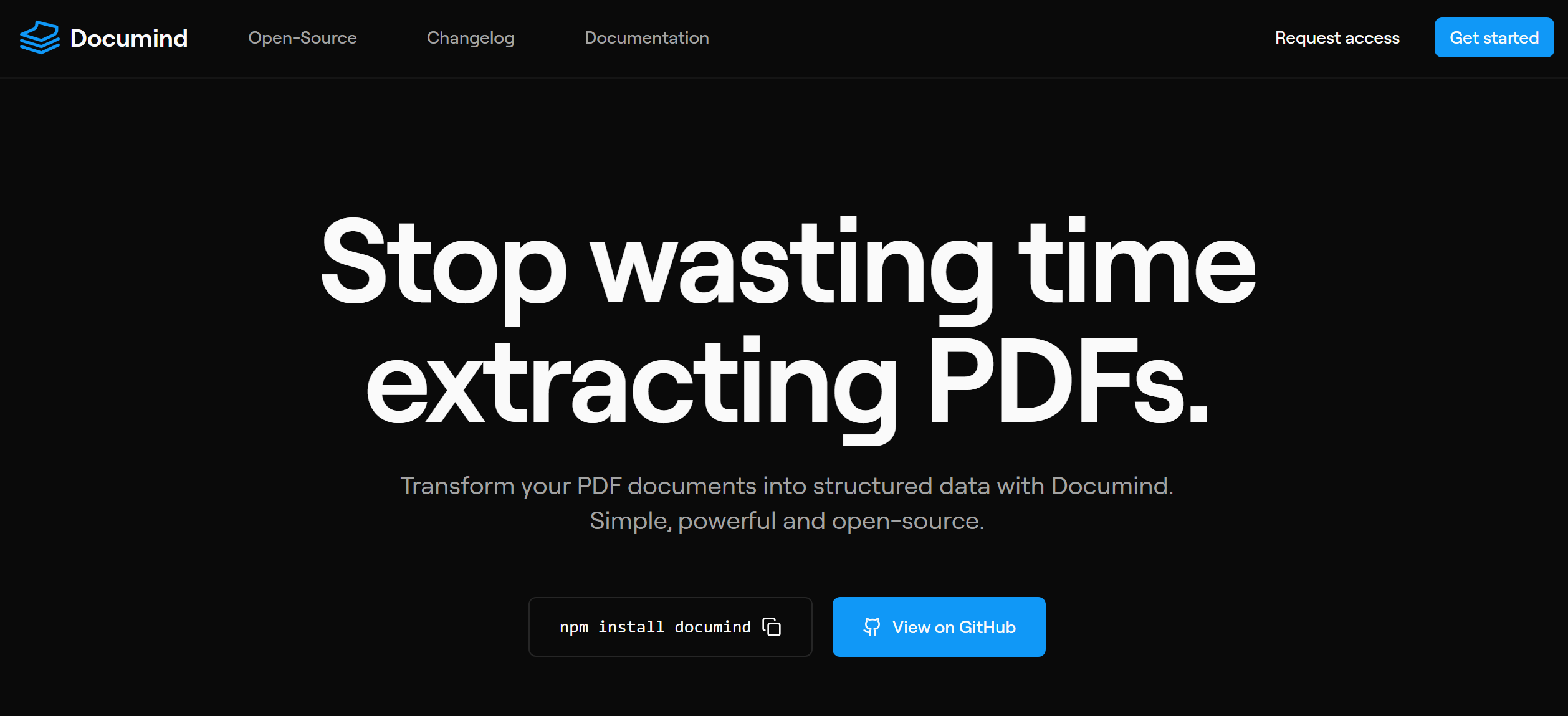Documind
Published Nov 10, 2024
⋅
NPM Package
⋅
Active
⋅
23 views
Turn unstructured files into usable data with AI

Quick Links
Tech Stack
Typescript, Javascript, Supabase, OpenAI
Key Features
- Extracts structured JSON output from unstructured documents.
- Converts documents into Markdown format.
- Supports custom schemas for data extraction.
- Includes pre-defined templates for common schemas.
- Works with OpenAI and custom LLM setups (Llava and Llama3.2-vision).
- Auto-generates schemas based on document content.
Featured Snippets
Dynamic Schema Generation
Documind simplifies extracting and validating data from documents by dynamically generating schemas. This feature ensures structured data extraction, reducing errors and speeding up workflows.
Here’s what this feature does:
- Flexible Schema Creation: Converts field definitions into a Zod schema for validating document fields dynamically.
- Supports Multiple Data Types: Handles strings, numbers, booleans, arrays, objects, and enums, making it versatile for various document structures.
- Custom Descriptions: Each field can include a description for better readability and documentation.
import { z } from 'zod';
/**
* Converts an array of type definitions into a Zod schema.
* @param {Array} object - Array of field definitions.
* @returns {ZodObject} - A Zod object schema.
*/
export const convertToZodSchema = (object) => {
const createZodSchema = (obj) => {
const schema = {};
obj.forEach((item) => {
let zodType;
switch (item.type) {
case 'string':
zodType = z.string();
break;
case 'number':
zodType = z.number();
break;
case 'boolean':
zodType = z.boolean();
break;
case 'array':
if (item.children && item.children.length > 0) {
const arraySchema = createZodSchema(item.children);
zodType = z.array(z.object(arraySchema));
} else {
throw new Error(`Invalid or unsupported "array" type definition for ${item.name}`);
}
break;
case 'object':
if (item.children) {
zodType = z.object(createZodSchema(item.children));
} else {
throw new Error(`Invalid "object" type definition for ${item.name}`);
}
break;
case 'enum':
if (item.values && Array.isArray(item.values)) {
zodType = z.enum(item.values);
} else {
throw new Error(`Invalid "enum" type definition for ${item.name}`);
}
break;
default:
throw new Error(`Unsupported type "${item.type}" for field ${item.name}`);
}
if (item.description) {
zodType = zodType.describe(item.description);
}
schema[item.name] = zodType;
});
return schema;
};
return z.object(createZodSchema(object));
};Why It’s Useful
Documents come in all shapes and sizes, and validating their data can be tricky. This:
- Dynamically adapts to any document structure, no matter how complex.
- Ensures extracted data is valid and consistent with the expected format.
- Saves time by automating schema creation for structured data validation